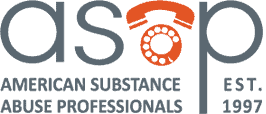By: Gino Fontana
New federal regulations affect drivers who test positive for drugs, but should fleets be doing even more to help them?
Things could be changing for drivers who test positive for drugs. The Federal Motor Carrier Safety Administration recently announced that as part of new federal regulations, drivers who test positive for drugs will not only have prohibited driving status but also will lose their commercial driver’s license. And until they complete the return-to-work process, they will not be able to obtain a learning permit.
Only after a substance abuse professional has determined the driver has successfully completed the steps needed to regain eligibility will FMCSA remove the violation from the Drug and Alcohol Clearinghouse. A driver will be able to regain his or her CDL at that point.
Having drivers who have completed return-to-work protocol makes sense since no one wants impaired drivers on the road. I think a lot of us feel good about seeing drivers get the help they need following a positive drug test, in part because we want them to return to work. We also genuinely want to help our drivers overcome any addiction issues they may have.
However, I am wondering if there is more we could do before the driver fails a drug test. To be clear, I don’t have a firm plan on how to go about implementing this, but I can’t help but think we could do more in the way of educating our drivers and providing them with ongoing confidential access to substance abuse professionals.
The data suggests we have a significant problem in the industry. The Drug and Alcohol Clearinghouse opened in January 2020, and since then, there have been 224,000 positive tests for drugs and alcohol. And even more telling, according to the September 2023 report (the most recent report), 149,374 drivers were on prohibited status, and a considerable number (113,639) have not even started the return-to-work process. Clearly, as an industry, we have a problem.
Perhaps instead of reacting when a driver fails a drug test, we should be proactive in providing them with the resources they need so they can get the help they need, and we can ensure our fleets are safe.
One thing you can do is sit down with the head of your HR department to review your drug and alcohol policies to see how much help your employees can get through internal resources.
I also suggest you invite a substance abuse professional to review your policies and offer insight into other ways you can help your employees who may be dealing with substance abuse issues and eliminate any stigma that may prevent them from seeking help.
G. Fontana (Dec. 2023). Article retrieved from Fleet Owner.





